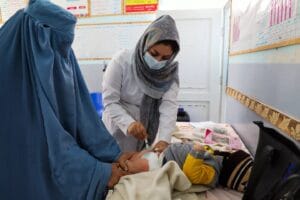Mpox outbreaks in Africa could be ended in 6 months-WHO chief

The World Health Organization (WHO) is optimistic that the ongoing mpox outbreaks in Africa could be halted within the next six months, with the first shipment of vaccines expected to arrive in Congo within days, WHO Director-General Tedros Adhanom Ghebreyesus said on Friday.
Africa has so far received only a small fraction of the vaccines needed to control the virus, particularly in Congo, which has recorded more than 18,000 suspected cases and 629 deaths, the highest in the region.
“With the governments’ leadership and close cooperation between partners, we believe we can stop these outbreaks in the next six months,” Tedros said during a press briefing. Although mpox infections have risen sharply in recent weeks, the death toll remains relatively low.
Tedros also noted the emergence of 258 cases of a new mpox variant, with patients identified in countries including Burundi, Rwanda, Kenya, Uganda, Sweden, and Thailand. In May, scientists detected a new version of the disease in Congo that may spread more easily.
Mpox, also known as monkeypox, is related to smallpox but generally causes milder symptoms, including fever, headache, and body aches. In severe cases, painful sores and blisters can develop on the face, chest, hands, and genitals. The virus is primarily spread through close skin-to-skin contact.
WHO has estimated that around 230,000 vaccines could be sent “imminently” to Congo and other affected areas, alongside education campaigns to raise awareness of how to prevent the spread of mpox.
Maria Van Kerkhove, WHO’s head of epidemic and pandemic diseases, emphasized the agency’s efforts to expedite vaccine access for affected countries, despite the limited supply.
Africa’s Centers for Disease Control and Prevention stated that the continent expects about 380,000 doses of mpox vaccines from donors, including the U.S. and the EU, though this represents less than 15% of the doses needed to end the outbreaks in Congo alone. Scientists have highlighted the need for a better understanding of mpox transmission in Africa to optimize vaccine use.












